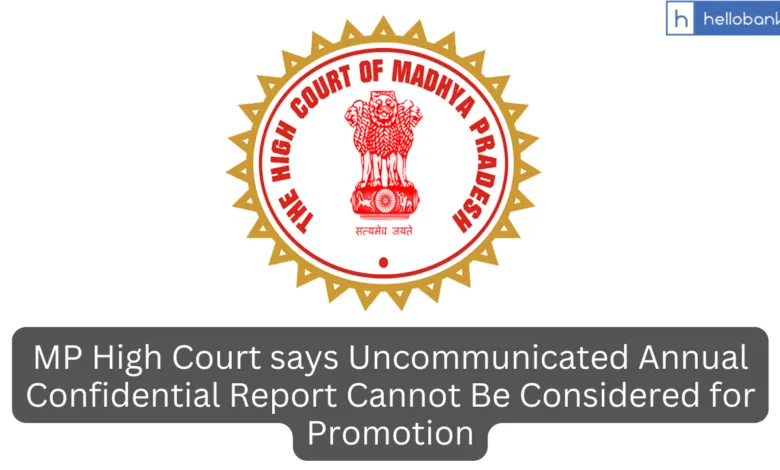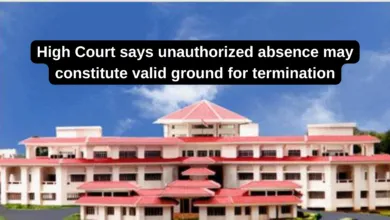MP High Court says Uncommunicated Annual Confidential Report Cannot Be Considered for Promotion

The Madhya Pradesh High Court has reaffirmed that Annual Confidential Reports (ACRs) that are not communicated to an employee cannot be used to determine their eligibility for promotion. This ruling came in response to a writ petition filed by a State Finance Service employee seeking restoration of her seniority and placement in the Super Time Pay Scale.
Case Overview
The single bench of Justice Subodh Abhyankar, while hearing the petition, observed, “It is apparent that uncommunicated ACRs cannot be taken into account while considering the case of an employee for promotion.” The Court referenced a 2009 Supreme Court judgment in Abhijit Ghosh Dastidar vs. Union of India (16 SCC 146), which held that even positive ACR ratings must be communicated to the employee so they have the opportunity to challenge or improve the rating if needed.
Petitioner’s Grievance
The petitioner, represented by Advocate L. C. Patne, argued that her promotion to the Super Time Pay Scale (Director) was unfairly denied, even though her junior had already been promoted. The primary reason for this denial, she claimed, was that her ACR for the year 2020 had been graded as “Grade-C” and was never communicated to her. She pointed out that in previous years—2016, 2017, 2019, and 2021—she had consistently received an “A+” grade, signifying “Excellent,” and an “A” grade in 2018, which stands for “Very Good.”
Respondent’s Defense
The State Department, represented by G.A./P.L. Bhagyashree Gupta, argued that since the ACR in question was not adverse, there was no requirement to communicate it to the petitioner. They claimed that the Grade-C rating in the 2020 ACR did not necessitate any formal notification or communication to the petitioner.
Court’s Decision
The petitioner’s counsel cited the Madhya Pradesh High Court‘s earlier ruling in Mehfooz Ahmad Vs. High Court of Madhya Pradesh & Another, which held that uncommunicated ACRs could not be considered by the Departmental Promotion Committee (DPC). He further argued that had the 2020 ACR been communicated, the petitioner would have taken steps to rectify it. Based on this, he contended that her grading for 2020 should be excluded from consideration for promotion.
Agreeing with the petitioner, the Court held that the non-communication of the Grade-C rating in the 2020 ACR was a violation of established legal principles. Referring again to the Abhijit Ghosh Dastidar case, the Court emphasized that even non-adverse grades must be communicated so the employee has a chance to address them.
The Court concluded that since the Grade-C rating in 2020 had not been communicated to the petitioner, it could not be considered in her promotion review. As a result, the Court ordered the restoration of the petitioner’s seniority and her placement in the Super Time Pay Scale (Director).
Conclusion
This ruling reinforces the legal requirement for transparency in the promotion process and highlights that all ACRs, whether adverse or not, must be communicated to employees to ensure fairness in career progression.





